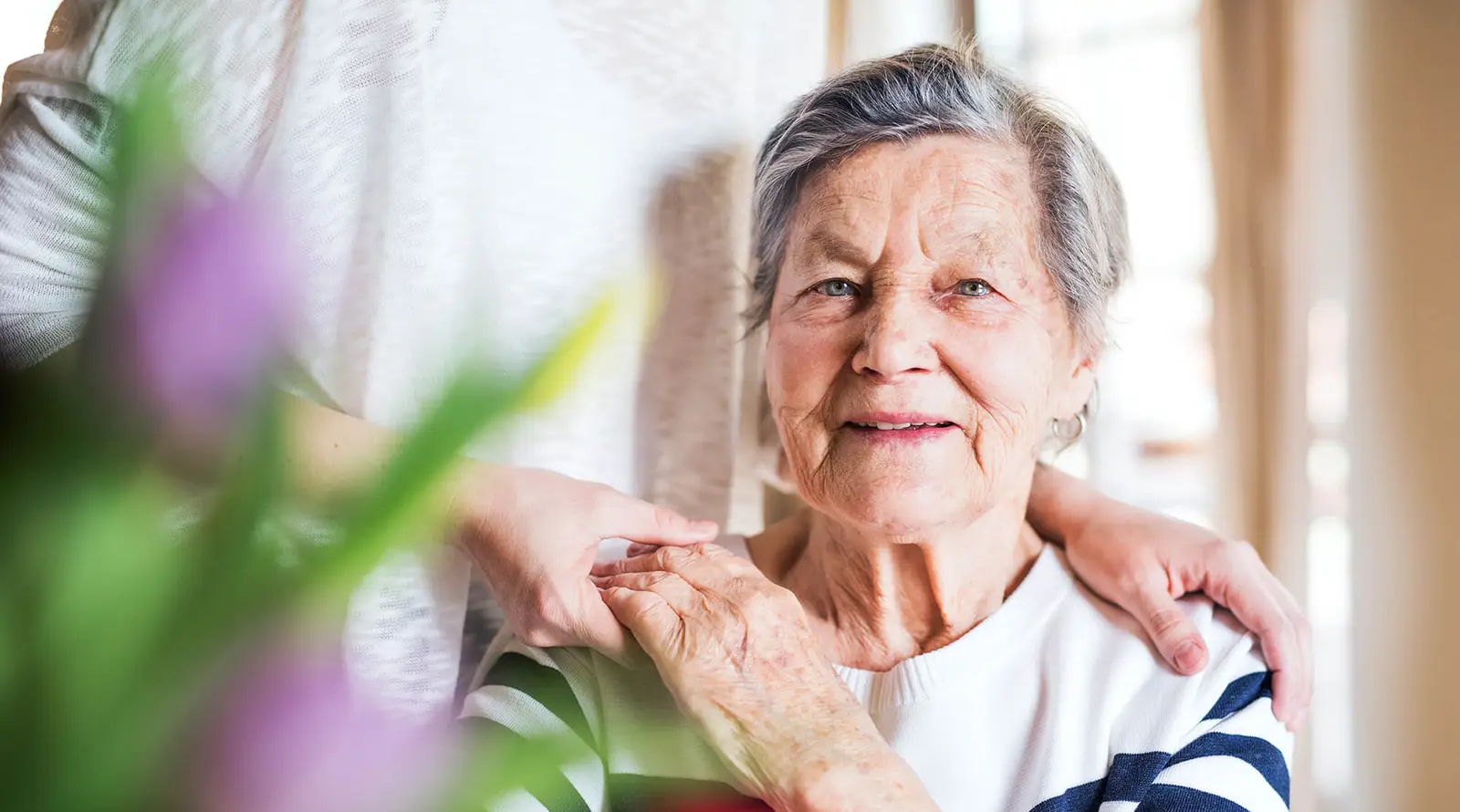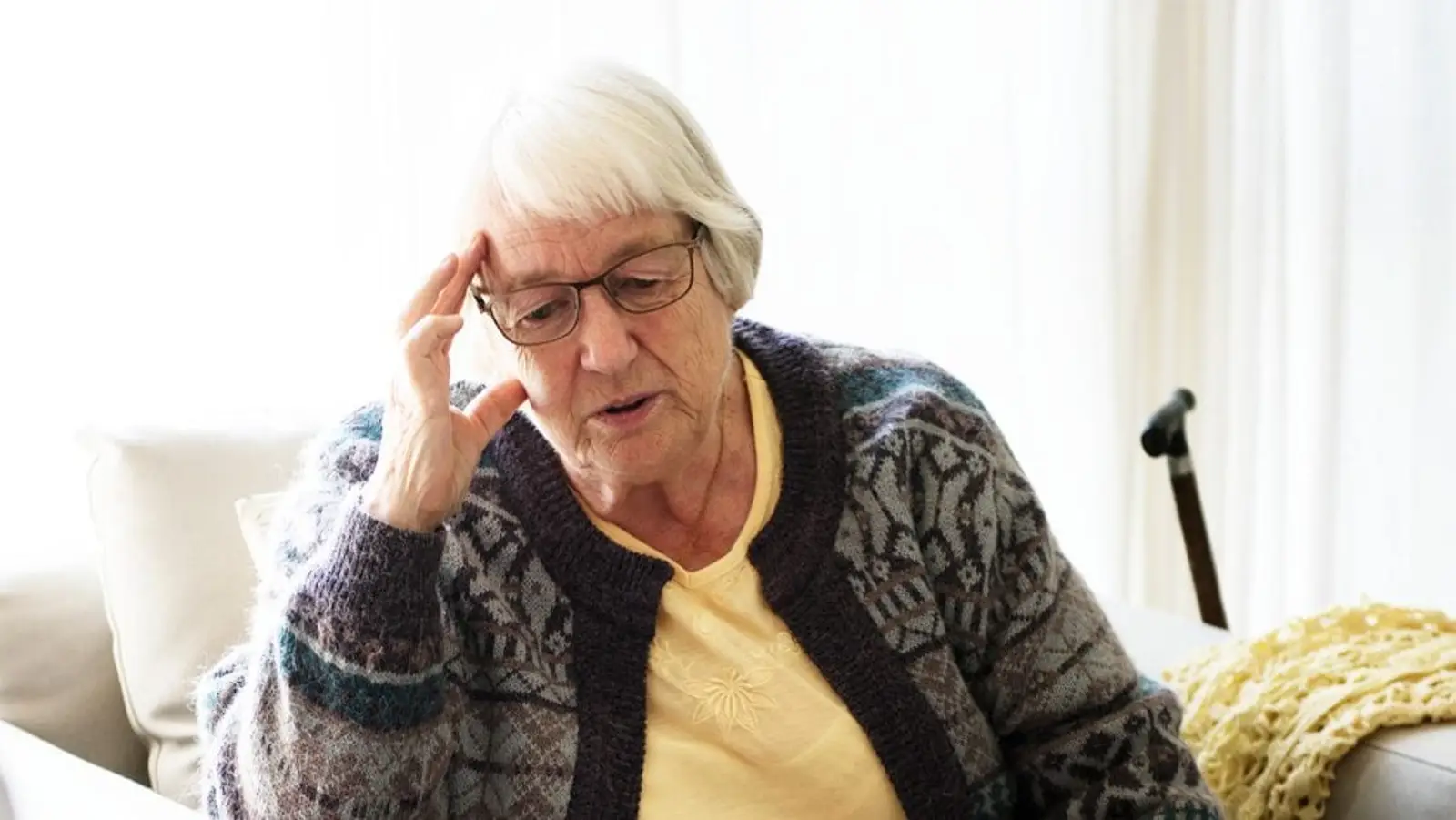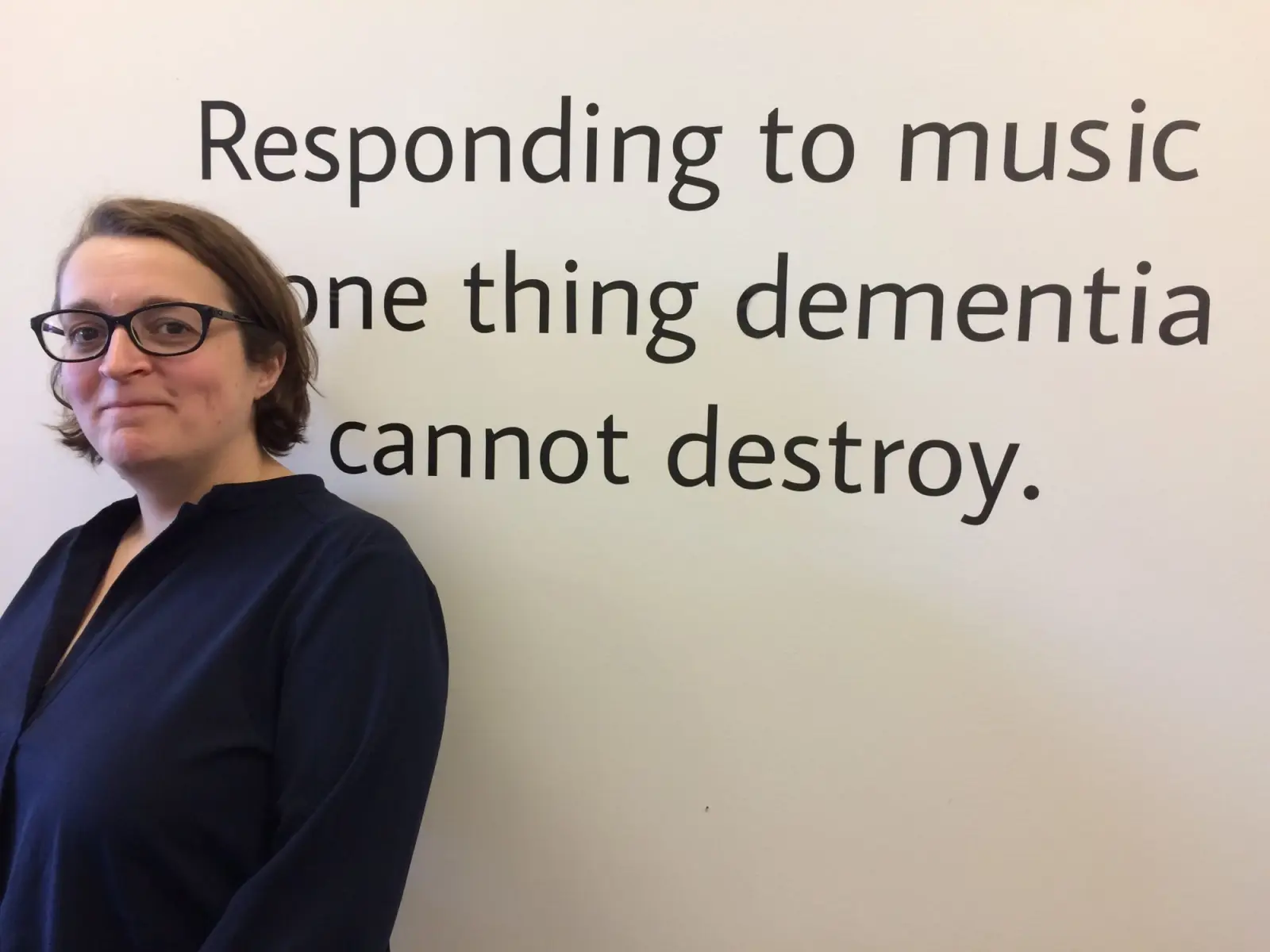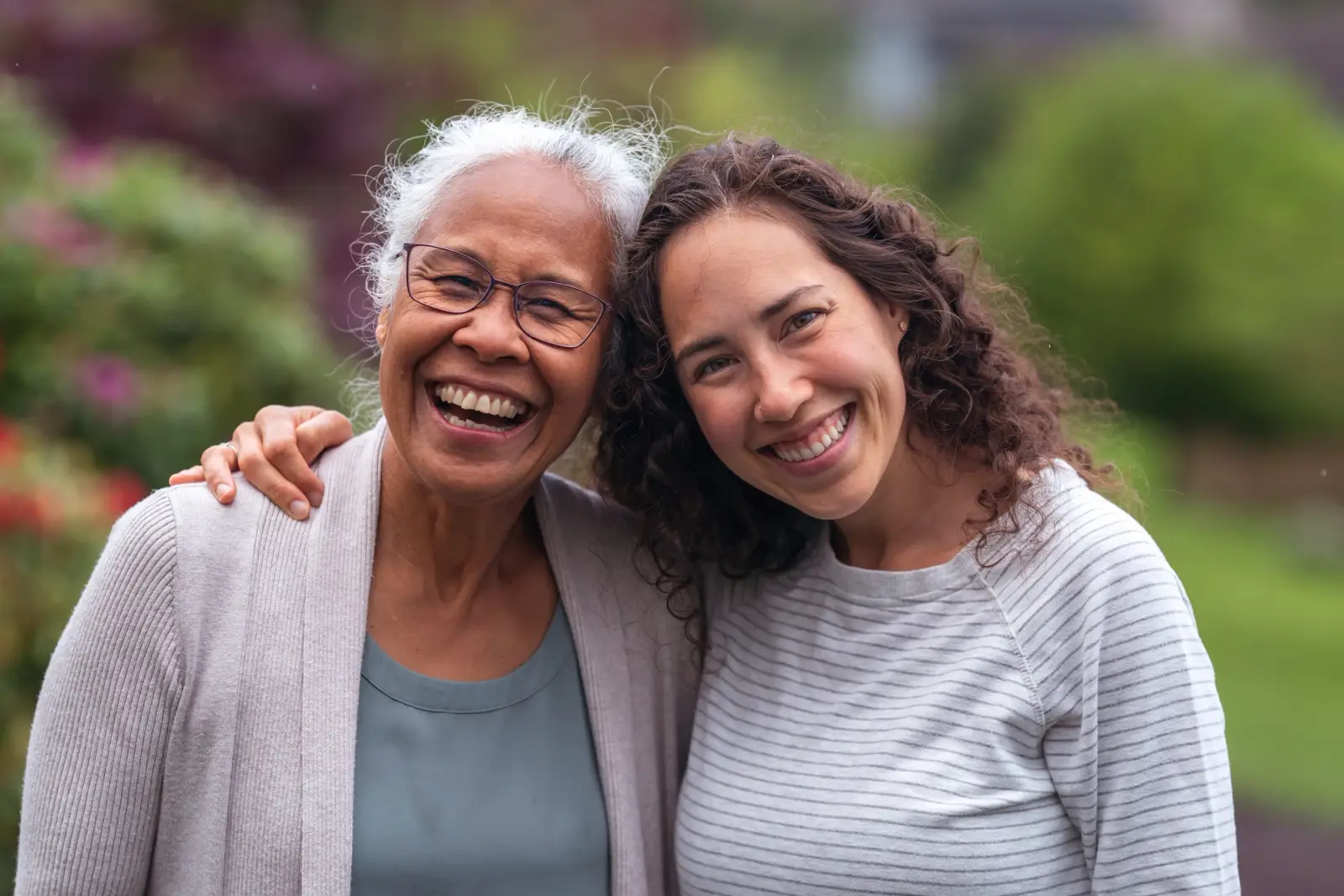Eight Years of Home Care: The carer who became family to her dementia client
8-minute read | 30/10/2025

Editorial Contributor

Mr Beard's story: A tribute to his late wife Jean and carer Yemi
Not too many in-home care placements span as long as eight years. For Mr John Beard and his late wife Jean, who lived with dementia, the couple formed a special bond with their carer, Yemi. Watch the full video below.
WHILE live-in care promotes longevity and continuity, there are very few instances where a carer resides in the home for a remarkable eight years.
For Mr John Beard and his late wife Jean, this was precisely the case. The bond they formed with their carer, Oyeyemi ‘Yemi’ Olaseinde, was undeniable.
“She used to call me dad,” said a smiling Mr Beard.
Yemi’s eight years of continuous care meant putting her life in London on hold, spending months at a time away from her two daughters. During the pandemic, and as Jean’s dementia worsened, Yemi stayed with the couple for six straight months.
This is the longest care placement Elder has facilitated, and perhaps one of the longest examples of “loving care” as Mr Beard describes it, in the country.
Mr and Mrs Beard
We travel to the sleepy but strikingly beautiful part of the UK, Great Longstone in the Peak District, where Mr Beard resides in the Bungalow built for Jean. It’s a home brimming with character and rich in memories.
Greeted at the door by the 90-something-year-old, Mr Beard ushers us over to a framed photo of the couple from their 1954 wedding, and a certificate from the Queen of England acknowledging their diamond anniversary.
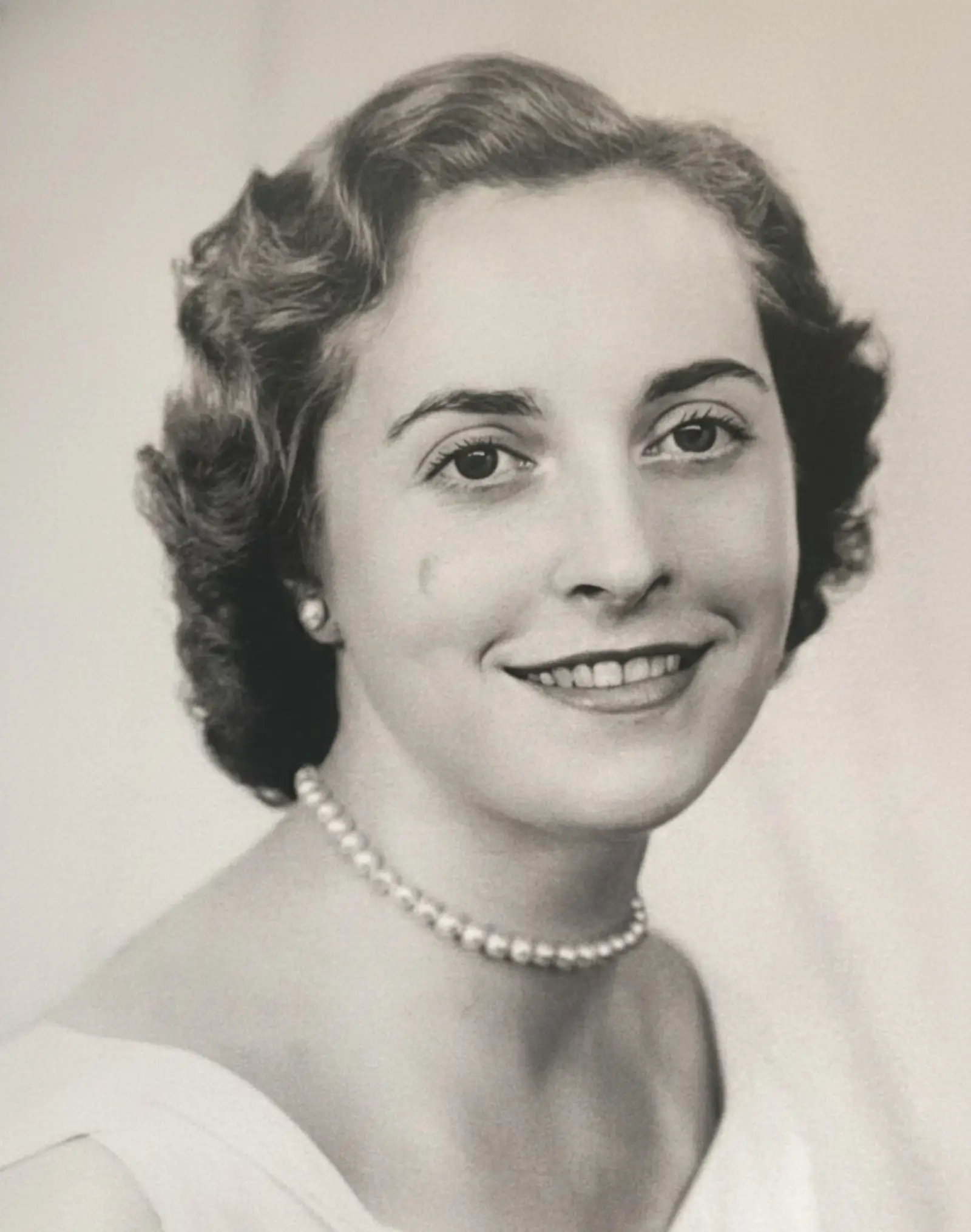
As we’re seated in the living room, Mr Beard hands over his wife’s funeral program and remarks on her picture.
“That was taken when I went into the RAF,” he said.
“We got married on July 10, 1954, and I was called up in October.
“I had it by my locker.”
Mr and Mrs Beard dated from the ages of 16 to 22; their bond solidified at a local church youth club. The couple’s first encounter, or rather Jean first laying eyes on John, was rather comical.
“She once saw me riding to school and thought my cycling was somewhat ungainly,” he said, chuckling.
“She said to a friend ‘Who’s that drip?’, and she put up with that drip for 71 years”.
“She was a bit shy, she was interested in everything, she was straightforward”.
“She was my all.”
After Mr Beard left the RAF in 1956, as part of his national service, the couple moved to Sheffield to raise a family. With the welcomed addition of their two children, Alastair and Fiona, the family moved several times before residing in Ashford In The Water, not five kilometres from their Dagenham bungalow.
Jean ran the home whilst devoting her time to her local community. She served as treasurer and a committee member for The Ashford Institute and The Women’s Institute, an organisation that provides a space for women to connect, learn new skills, and campaign on issues. She also volunteered for numerous years at the Bakewell Red Cross Store.
Mr Beard built himself a successful career as an accountant, joining what had been his grandfather’s firm in Sheffield. In retirement, he became heavily involved with the Freemasons. As a member of the charitable committee, he ultimately earned himself the title of Deputy Grand Master for Derbyshire.
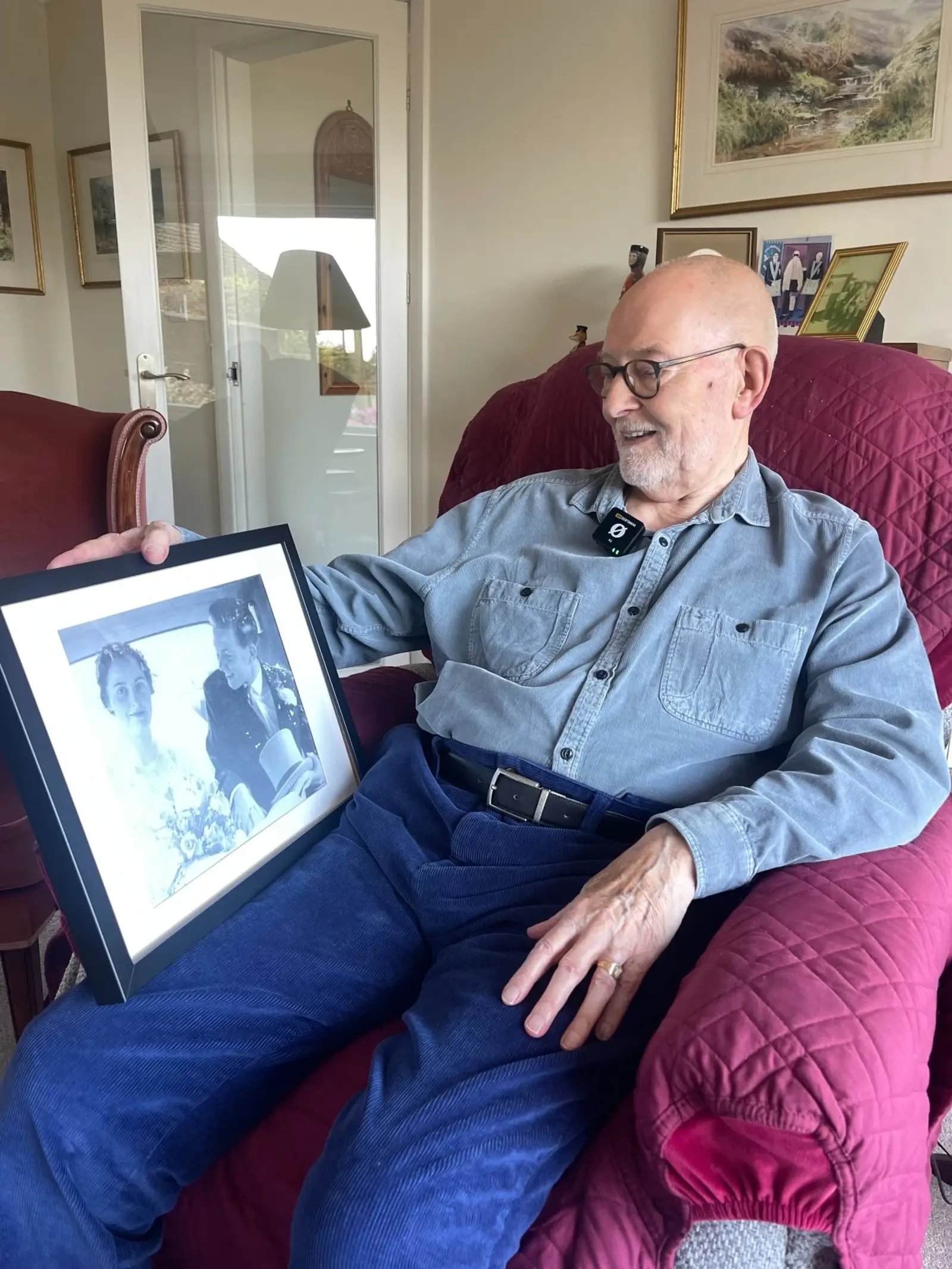
Noticing the signs of dementia
Upon Jean’s dementia diagnosis in 2009, it became apparent to Mr Beard that their home of 32 years, a converted 200-year-old barn in Foolow, wasn’t adequate for his wife’s needs.
Relocating to their bungalow a year later, Mr Beard recalled the time both he and Jean realised her condition was worsening.
“She’d taken our grandson to swimming. She had come out (in her vehicle) and didn’t know which way to turn. She turned left instead of right. It was then that I realised that something was wrong.”
“Then we went through all the different stages they go through. They worry about curtains getting pulled, doors being locked”.
“Then it gets to the stage where they don’t worry. So in a way it’s good, but it also means they’re at a lower stage.”
It wasn’t until a fall, in which Mrs Beard fractured her pelvis, that Mr Beard realised he needed help.
“At that stage I had to do something,” he said.
“Whilst I could help her during the day, I couldn’t do the night bit as well.”
More than just a carer
At first, the idea of having a carer in the home can be daunting for most, but the help from carer Yemi proved invaluable in so many ways.
Within a few weeks, Yemi and Mrs Beard bonded. Between the care duties, they watched television, shopped, and completed puzzles, a favourite hobby of Mrs Beard’s before her diagnosis.
Mr Beard recalls the smells of Nigerian cooking and how Yemi referred to him as “dad”.
“She was very capable at caring, and she looked after Jean very well,” he said.
For eight years, the Beards, John, Fiona and Alastair, entrusted Yemi to their loved one’s care. Yemi became the foundation of Jean’s world, and in turn, the family rallied to see Yemi return home to London for breaks when she could.
Mr Beard would pay for Yemi’s train tickets where he could, and Alastair would drive her back to London.
Before going on break, Yemi made sure that John and Jean found the best respite carer.
“We always tried to get the same carers, and Yemi was insistent she got the right person,” Mr Beard said.
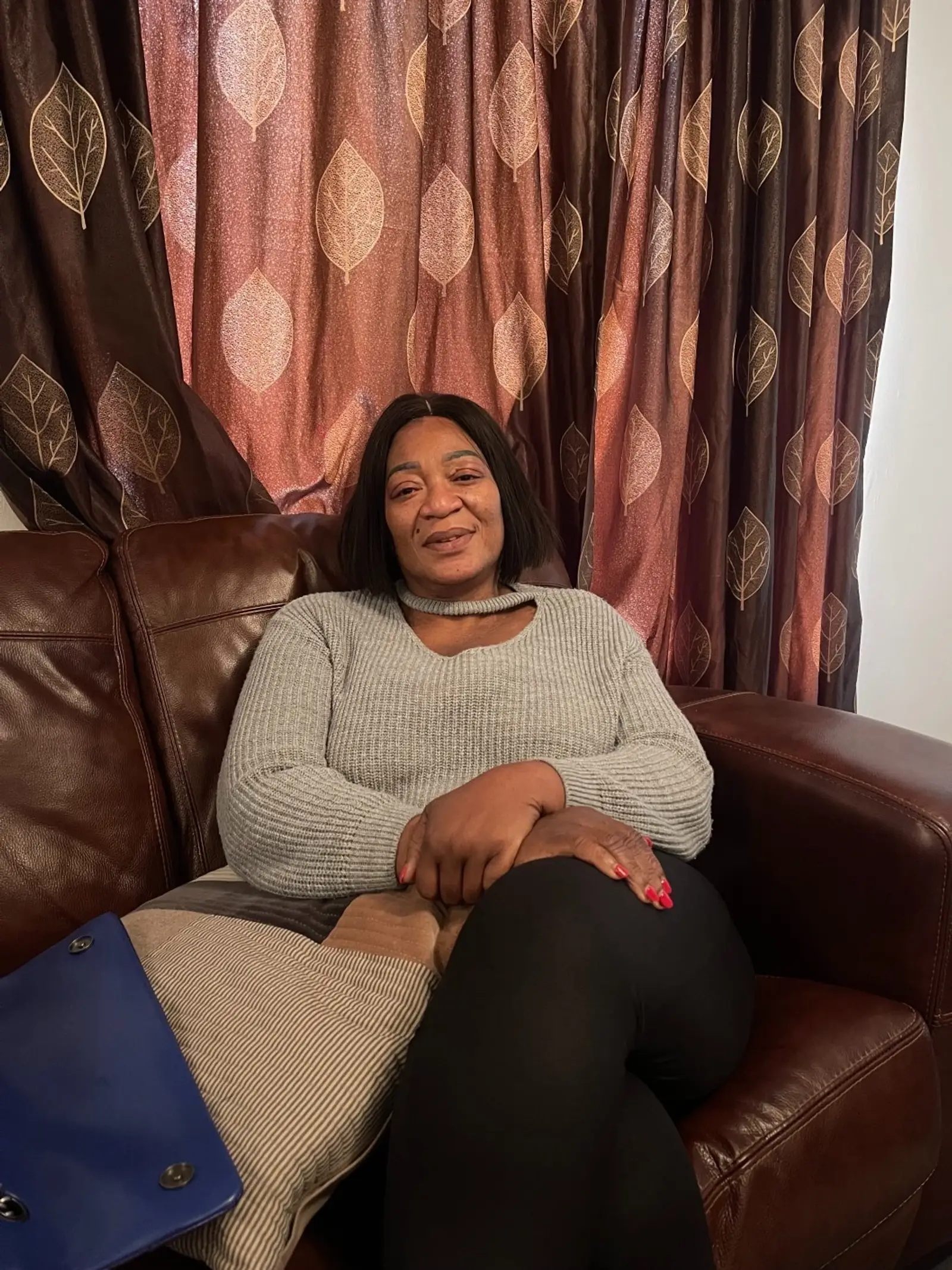
“Yemi and I used to look at carers and make our decisions together”.
“She (Jean) would settle when Yemi was away, but she always knew her when she came back.”
Away from her two daughters, Yemi was embraced as a member of the family and cared for Mrs Beard until her peaceful passing in March this year.
The benefits of live-in care
There was no doubt in Mr Beard’s mind that home, as opposed to a care home, was where his wife needed to be. Continuity of care and a familiar environment were paramount to Jean’s health, safety, and peace of mind.
“The fact that she was here (home) and I was here, it made life much better for her, and much better for us,” he said.
“Home every time.”
With the bungalow just around the corner from their daughter's home, the couple could expect regular visits from their grandchildren. This, Mr Beard said, used to “pluck up” his wife, especially as her dementia worsened.
“You tried telling her that you loved her very much, but you weren’t sure she was getting it,” he said.
“Towards the end, there wasn’t much reaction, but one breakfast time, I went in and got the most dazzling smile. It was like a ray of sunshine.”
Carer becomes family member
Yemi knows all too well the hardships faced regarding a dementia diagnosis.
Looking after her grandmother, who lived with dementia, inspired her to become a carer.
“I like being a companion,” she said.
“That’s what a lot of the elderly want. A companion, a friend.”
Yemi’s longest placement with John and Jean Beard was for six months during the pandemic. While it was difficult being away from her two daughters for such a lengthy period, she described the Beard family as “marvelous”.
“Mrs Beard was used to me,” she said.
“I knew all of the family, the grandchildren, everyone”.
“When it came time for the placement to end, Mr Beard didn’t want me to go.”
Mr Beard and Yemi still stay connected via regular phone calls.
The importance of an early dementia diagnosis
Mr Beard stressed the importance of looking out for signs of dementia and seeking help and a diagnosis immediately.
“First of all, you’ve got to realise the symptoms and you’ve got to make sure you get them looked at by a psychiatrist, via a doctor, because the signs are always there,” he said.
“It needs to be diagnosed at an early stage, and I’m all for that.”
Elder’s Head of Clinical, Bianca Wardle, concurs.
“From a clinical standpoint, an early dementia diagnosis is fundamentally the most important step a family can take, as it reduces uncertainty and gives the person and their families a greater sense of control,” she said.
“An early diagnosis allows families to develop a personalised care plan, involve relevant professionals, and introduce supportive therapies while the person can fully participate”.
“Most importantly, it gives families the time to make informed decisions about care and future planning before a crisis hits”.
“Waiting until symptoms worsen can make planning more challenging, may lead to last-minute decisions that affect the person’s dignity and well-being, and could contribute to a faster progression of their condition.”

Find your ideal carer
We have connected over 5000 families to carers so far.
